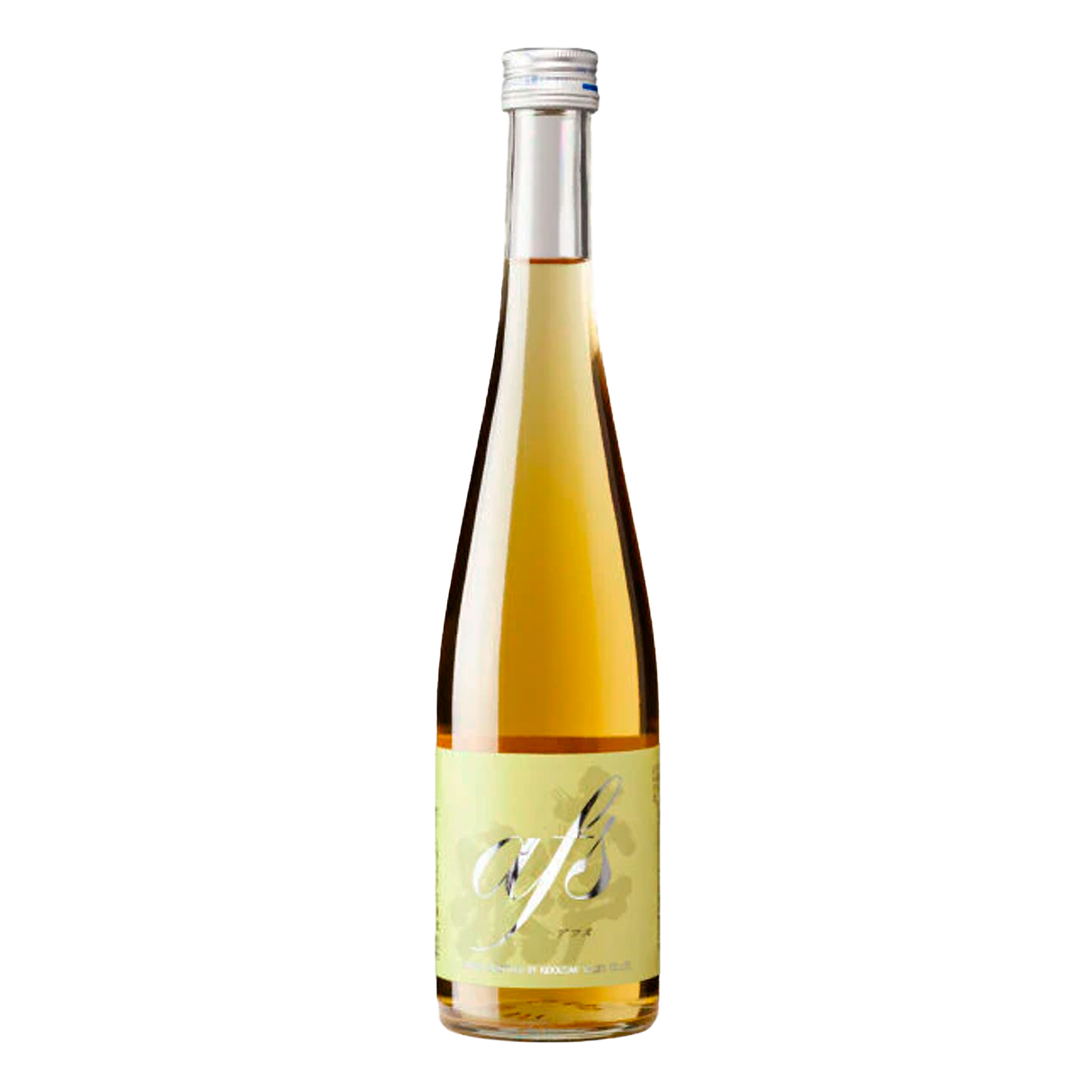
Kidoizumi Ichidan Jikomi MNG "AFS" (300ml)
- In stock, ready to ship
Wow, wow, wow!!
Carrot cake and gobs of cream cheese frosting...orange marmalade, marzipan, almond torte, caramel, tinned mandarin segments, and honeysuckle flowers. Bass notes of chamomile, dried apricot, soy sauce and miso. The BRIGHTEST acidity, like a shock to the spine, brings you to attention: sour straws! Granny smith apples! Lemon juice! The palate is bright, daring, delightful, very acidic at first, but as your palate adapts, AFS is pure delight. I found myself simply nosing the glass as much as drinking it.
Kidoizumi Shuzo、木戸泉酒造
Isumi-shi, Chiba
Rice: Fusa no Mai (local)
Rice Polish: 65%
SMV: -33
Acidity: 10
ABV: 14%
Chiba prefecture lies between Tokyo Bay and the Pacific Ocean, a verdant area traditionally known for prolific farming. The Kuroshio (“black salt”) current flows around Chiba’s shores, which keeps it relatively warmer in winter and cooler in summer than neighboring Tokyo.
Kidoizumi was founded in 1879, and is currently run by the fifth generation owner-toji of the Shoji family, Hayato Shoji. It is the only brewery in Japan that uses the Hot-Yamahai method, developed by Hayato’s grandfather in the 1950s. In a traditional yamahai sake the starter of the sake is left exposed to the air for several days to naturally develop lactic acid, and needs cool temperatures to avoid getting contaminated by unwanted bacteria. Despite its location in relatively warm Chiba, Kidoizumi developed a method where large amounts of lactic acid producing bacteria are cultivated on the premises are added to a starter kept at very high temperature.
The result is a unique full bodied, multi-layered taste which is completely unique to their brewery. Their namazake (unpasteurized sake) has a unique combination of acidity and sweetness, complex floral notes and a rich mouthfeel. Because of the unique method of production, it is a very stable sake once opened. It pairs excellently with bold flavors and has a special magic with grilled meats.
In addition Kidoizumi are proud to use locally grown rice that meets their standards, embracing traditional growing techniques and banning the use of chemical fertilizers. They were one of the first pioneers for the organic movement in Japan, skirting the rules during the decades when the government controlled all rice sales and production methods. We like their rebellious spirit and are glad they applied it to sake making!
A bit of cheese brings out the bitter citrus, fresh sourness, totally transforming it. Lots of experiments are in order, so I'll need to report back...but for now, look to quarts de chaume or tokaj aszu for inspiration. AFS is in the same camp, but with a resonant, savory shoyu vibe, too.

